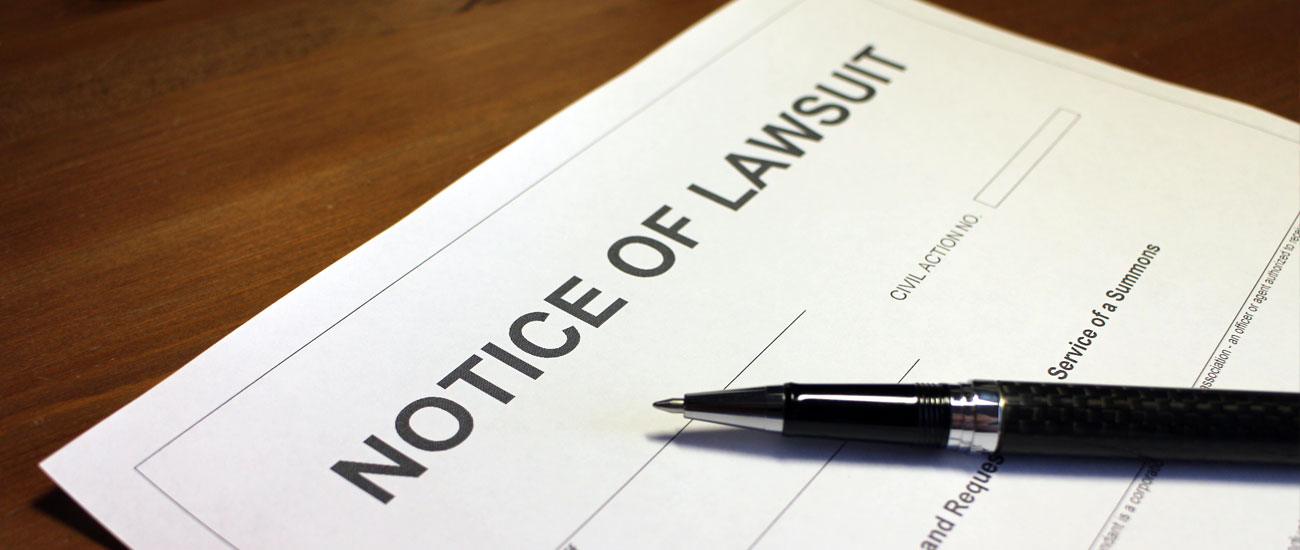Default Judgments – Avoid Them at All Costs: Ten Bad Things That Could Happen to You

Quick Summary
Facing a lawsuit is serious—failing to respond within the required timeframe can lead to a default judgment with harsh financial, personal, and business consequences. This article explains why it’s crucial to act promptly, outlines the steep risks of allowing a default judgment to be entered against you, and provides practical steps to protect your rights. If you’ve been served—or if a default judgment has already been entered against you—don’t wait. Contact Eric B. Smith, Esquire, at 215-540-2653 or esmith@timoneyknox.com for immediate guidance on your legal options.
So, you have been sued. There is usually a flurry of different reactions – “it’s all lies;” “he finally filed suit; “she wasn’t bluffing; “I don’t have anything for them to take;” or, that old chestnut, “we can still work it out.” These reactions are all the same, whether the suit arises from a business transaction, or among business associates, or family, or from a real estate matter.
Respond Immediately to a Lawsuit
Your first response to a lawsuit filed against you should be to retain an attorney. It is not an option to ignore a lawsuit, and you generally have just twenty (20) days to respond. It is folly to believe that another party has hired a lawyer, paid the court costs, put it on the public record, and directed the Sheriff to serve the suit on you, only to “work it out” at that stage. Act immediately to protect yourself and engage counsel. The time of bluffing or ‘working it out’ has passed, at least for the moment.
If the initial twenty (20) day period has passed and you have been given the required ten (10) day notice, you should take immediate steps to retain counsel.
What Happens After a Default Judgment Is Issued?
Failing to take a complaint filed against you seriously could have costly, permanent, long-term financial, personal, and business repercussions. Allowing a default judgment to be entered against should be avoided at all costs. Once a default judgment is issued, serious consequences can unfold quickly—often without any further opportunity for you to present a defense. Also, fighting to strike or open a default judgment always makes your case more expensive.
Ten Bad Things That Could Happen When a Default Judgment Is Entered Against You:
- All facts in the complaint are deemed to be conclusively admitted by you, whether accurate or not, and whether you agree with those facts or not;
- If the complaint concerns a fixed amount of money, the default judgment will be entered against you in that amount, including court costs;
- Even if you have a winning defense, you will be unable to present it if you are under a default judgment;
- If the complaint concerns damages that are undetermined, there will be a second hearing to “assess damages” and, if you fail to appear, damages proven by the plaintiff will be assessed against you, without your defense;
- The amount of damages assessed in the default judgment is immediately a lien against all real estate you own within the county in which the default is entered, and in counties to which the plaintiff transfers the judgment, allowing the plaintiff to sell that real estate at a Sheriff’s Sale;
- As soon as a default is entered, plaintiff may send questions to be answered under oath (interrogatories in aid of execution) to you to locate assets belonging to you;
- The Sheriff may be authorized by the plaintiff to put the lien of the Court (attachment) on certain of your non-real estate assets;
- The plaintiff may send questions to be answered under oath (garnishment interrogatories) to any financial institution, including Paypal and Venmo, or other entity or person who may hold your assets or who owe you payment, such as your bank, tenants, dividend reinvestment plans, and brokerage services;
- The plaintiff, through the garnishment process, may seize your bank, brokerage, stock, bond, cryptocurrency and other financial accounts; and
- The Court may enter an order allowing the Sheriff to take other action against you, including, for example, directing the seizure or sale of your personal property, contents of your home or office, automobiles, non-publicly traded stocks and interests in partnerships and limited liability companies, seizure of rent or payments due to you and also ejecting you from real estate or determining your legal rights regarding real estate, or ownership of personal property, including stocks or your interest in your own company!
As further bad news, default judgments do not simply vanish. The lien of a default judgment lasts five years and may be easily and repeatedly revived and transferred to other counties or states.
If a Default Judgment Is Entered, Act Fast
If a default judgment has been entered against you, you must act quickly to open the judgment, generally within ten (10) days of its entry, or establish a defect on the face of the record to warrant a Court striking the judgment. There is no guarantee that a Court will open or strike a judgment, leaving you with the option to appeal a denial of such a motion. This process is expensive and could have been avoided with a timely response.
Next Steps and Preventive Actions
- Consult with Counsel Immediately: Retain an attorney experienced with civil litigation matters and default judgments. Retaining an attorney early on in the process will help be guided through the process of responding to the complaint, challenging a default judgment, or negotiating a resolution.
- Check All Deadlines: If you are sued, note the date you were served and the deadline to respond, which is generally twenty (20) days. If a default judgment is already entered, confirm the date it was issued and the timeframe for filing a motion to open or strike it—which is best if done within ten (10) days. Even if you miss these deadlines you should contact an attorney.
- Gather Documentation: Collect all relevant documents related to the case. This may include contracts, correspondence, financial records, and any prior communications with the opposing party. Having these materials ready will allow your attorney to quickly assess your defenses and procedural options.
- Consider Negotiation or Settlement: Even after a default judgment is entered, there may be opportunities to negotiate with the plaintiff’s attorney. Your lawyer can help you explore potential settlements, payment arrangements, or other agreements that could mitigate the consequences.
Questions regarding this article and default judgments may be directed to Eric B. Smith, Esquire, 215-540-2653 or esmith@timoneyknox.com.
Frequent Asked Questions
Can a default judgment affect my credit score or ability to obtain future financing?
Yes, a default judgment may negatively affect your credit score, and will be a lien on all of your real estate. Buying and selling real estate will be negatively affected by the entry of a default judgment.
What are the differences between a default judgment and other types of judgments, such as summary judgment or consent judgment?
A default judgment is entered against you because you failed to respond, forcing you to admit the facts and the damages in the case. Whereas, a summary judgment is entered based upon a legal decision by the court after all of the parties to a lawsuit have the opportunity to be heard. Lastly, a consent judgment is entered by agreement of the parties and the court.
Does a default judgment limit my ability to sell, buy or refinance real estate?
Yes, a default judgment will greatly limit, or prevent, your ability to freely sell, buy or refinance real estate. With a default judgment, likely, no lender will issue a mortgage and no title agency will insure title, because the lien of the default judgment will immediately attach to the property and have priority over the mortgage.
If a default judgment is opened or stricken, can the plaintiff refile the same claims against me?
After your attorney successfully opens or has the default judgment stricken, then, the case proceeds as it would have as if there never were a default judgment. You are permitted to file an answer and defend the case.
How do I verify that a default judgment has been satisfied once I’ve paid the required amount or reached a settlement?
If you are able to resolve the case and pay the judgment, the plaintiff must file a specific form called a satisfaction of judgment.
Can I challenge the method of service (how I was notified of the lawsuit) as a basis for contesting a default judgment?
Yes, improper or lack of service is a basis to strike a default judgment, and may be a basis to open a judgment as well. Without proper service, it is impermissible for the plaintiff to enter a default judgment against you.
Updated: December 28, 2024






